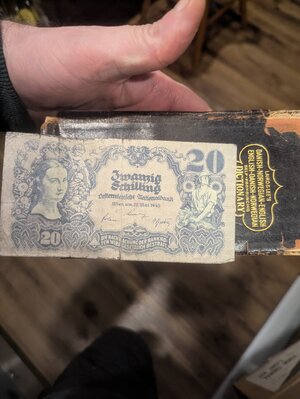- Thread Author
- #76
in Germany, the disastrous World War, which pitted Germany against the
whole of Europe, would never have taken place.
But though Schonerer succeeded in penetrating to the essentfa1s of a
problem, he was frequently mistaken in his judgment of men.
And here, on the other hand, lay Dr. Lueger's strength.
He had a rare gift of insight into human nature, and he was very careful
not to take men as something better than they really were. He based his
plans on the practical possibilities that human life offered him, whereas
Schonerer had only little understanding in that respect. All ideas that this
pan-German had were theoretically right, but he didn't have the
forcefulness or understanding necessary to put his ideas across to the broad
masses. He was unable to formulate them for the masses, whose powers of
comprehension are limited, and will always remain so. Therefore all
Schonerer's knowledge was only visionary wisdom; he never could
succeed in putting it into practice.
This lack of insight into human nature led him to err in estimating the
forces behind certain movements and the inherent strength of old institutions.
Schonerer indeed realized that his questions involved the nature of a
worldview. But he didn't understand that only the broad masses of a nation
can make such convictions-which are almost religious in nature-prevail.
Unfortunately, he only poorly understood how weak the fighting spirit of
the so-called bourgeoisie is. That weakness is due to their business interests;
they are much too afraid of taking risks, and this deters them from acting.
And generally speaking, a worldview has no prospect of success unless
the broad masses declare themselves ready to act as its standard-bearers,
and to fight on its behalf-wherever and to whatever degree necessary.
This failure to understand the importance of the lower strata of society
resulted in a very inadequate conception of the social question.
In all this, Dr. Lueger was the opposite of Schonerer.
His profound knowledge of human nature enabled him to correctly judge
the various social forces, and it saved him from underrating the power of
existing institutions. And it was perhaps this very quality that enabled him
to utilize those institutions as a means to serve the purposes of his policy.
He saw only too clearly that, in our day, the political fighting power of
the upper classes is quite insignificant; it is incapable of fighting for a great
new movement until the triumph of that movement is secured. Thus he
devoted the larger part of his political activity to the task of winning over
those sections of the population whose existence was in danger, and to
fostering a militant spirit in them rather than attempting to paralyze it. He
whole of Europe, would never have taken place.
But though Schonerer succeeded in penetrating to the essentfa1s of a
problem, he was frequently mistaken in his judgment of men.
And here, on the other hand, lay Dr. Lueger's strength.
He had a rare gift of insight into human nature, and he was very careful
not to take men as something better than they really were. He based his
plans on the practical possibilities that human life offered him, whereas
Schonerer had only little understanding in that respect. All ideas that this
pan-German had were theoretically right, but he didn't have the
forcefulness or understanding necessary to put his ideas across to the broad
masses. He was unable to formulate them for the masses, whose powers of
comprehension are limited, and will always remain so. Therefore all
Schonerer's knowledge was only visionary wisdom; he never could
succeed in putting it into practice.
This lack of insight into human nature led him to err in estimating the
forces behind certain movements and the inherent strength of old institutions.
Schonerer indeed realized that his questions involved the nature of a
worldview. But he didn't understand that only the broad masses of a nation
can make such convictions-which are almost religious in nature-prevail.
Unfortunately, he only poorly understood how weak the fighting spirit of
the so-called bourgeoisie is. That weakness is due to their business interests;
they are much too afraid of taking risks, and this deters them from acting.
And generally speaking, a worldview has no prospect of success unless
the broad masses declare themselves ready to act as its standard-bearers,
and to fight on its behalf-wherever and to whatever degree necessary.
This failure to understand the importance of the lower strata of society
resulted in a very inadequate conception of the social question.
In all this, Dr. Lueger was the opposite of Schonerer.
His profound knowledge of human nature enabled him to correctly judge
the various social forces, and it saved him from underrating the power of
existing institutions. And it was perhaps this very quality that enabled him
to utilize those institutions as a means to serve the purposes of his policy.
He saw only too clearly that, in our day, the political fighting power of
the upper classes is quite insignificant; it is incapable of fighting for a great
new movement until the triumph of that movement is secured. Thus he
devoted the larger part of his political activity to the task of winning over
those sections of the population whose existence was in danger, and to
fostering a militant spirit in them rather than attempting to paralyze it. He


